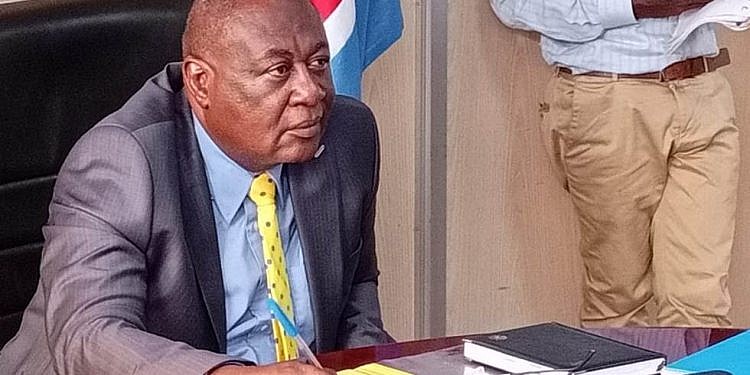By Sam Mayanja
On taking power in 1986, reviving household incomes was an essential component in President Museveni (Sabalwanyi’s) scheme of reviving the national economy, and wealthy creation.
Coffee had been playing a leading role in the livelihood of Ugandans before the economy of the country collapsed during the period of mis-rule by the various past regimes.
42 percent of all farming households in Uganda were growers of coffee. The coffee was linked to poverty reduction with poverty levels lower during periods when coffee prices were high and vice-verse.
By the time President Museveni took power, coffee producers had been disillusioned by the practice of Co-operative Unions of giving chits and not paying cash on delivery. Sometimes the chits would get lost and the farmers would lose their entire crop for the season without payment.
Accordingly some farmers resorted to the extreme measure of cutting down their coffee plantations.
To revamp the coffee industry, President Museveni declared coffee, a strategic commodity whose development had to be accelerated to enhance its productivity.
Consequently, in 1990 His Excellency, put in place comprehensive reforms. The coffee industry was liberalised, and Coffee Marketing Board liquidated. A regulatory framework was put in place in the form of the Coffee Development Authority.
Due to these reforms, the downward trend in the coffee industry was reversed. Producers’ share of export prices doubled and coffee growers begun to receive payments for their coffee promptly on delivery.
Producers share of export prices which prior to 1990 was less than 30% shot to 70%. Entrepreneurial activity increased from the five private export companies originally licensed, to seventy, in just four years.
Furthermore, thousands of small traders entered the coffee trade business in addition to the many increased farmers. As a leap forward, in October 2015, His Excellency the President issued a directive to accelerate coffee production further from the then 4.5 million 60kg bags to 20 million bags by 2020.
A study was set up to identify the road blocks to be removed in order to implement this directive. The study identified poor marketing position in the global market, weak regulatory framework, domestic marketing inefficiencies and quality deterioration.
To overcome these roadblocks, the President on 13th April 2018 launched the coffee 2020 roadmap targeting the 20 million bags annual export by 2025.
With the country fast moving to achieving the export target, the unique flavor and aroma of Uganda coffee needed to be noticed internationally to give the country’s product a reputation which would enable it to command a very high retail price on the international market.
The challenge however, and the burden of His Excellency the President, was that only 5% to 10% of the retail price actually came back to Uganda.
Most of the coffee profit was shared by distributors and middle men in the marketing sector where the Uganda coffee is mixed with coffees from other countries and loses its Ugandan uniqueness.
The Uganda coffee must have visibility and gain international consumer recognition as Uganda coffee.
President Museveni’s challenge is to identify and put in place, a mechanism which should lead to a greater share for the country’s coffee farmers by narrowing the gap between the retail price and the return to the coffee farmers.
The thrust must be to sell Uganda coffee on the international market under a well organised branding promotion as Uganda coffee, strengthening the confidence and bargaining position of the Uganda coffee on the world market.
In wealth countries, a cup of cappuccino may be sold at US$4, but many coffee growers in Uganda still earn less than a dollar a day.
For Ugandan coffee to attain its unique branding on the international market, it must leave Uganda as value added Ugandan coffee. The result from this value addition shall be seen in terms of increased income and
improved living standards of the coffee farmers. The coffee farmers will then earn a retail price ranging from US$20 to US$28 per kilogram from receiving the current scanty US$1 per kilogram.
Overall, with the value addition giving Uganda’s exported coffee with a unique Uganda branding, the total export would approach the level of US$1.2-1.6 billion within the first year of export.
The export value will go higher and higher as the Ugandan fine coffee gets a well organised branding instrument and takes grip on the international market.
The Ugandan fine coffee manufactured locally will be distinguishable from coffees of other countries on the world market. The Uganda coffee farmers will have become part of the price setters, instead of being price takers.
It is within these dynamics of positive drive of the coffee industry which Sabalwanyi has passionately championed over the years, that the rationalisation of the Coffee Development Authority to the Ministry of Agriculture, Animal Industry, and Fisheries, must be appreciated.
His Excellency President Kaguta Museveni has lifted the coffee industry from oblivion to where the country now stands-ready to leap, to the level of selling a Ugandan branded fine product on the international market.
Dr. Sam Mayanja
Minister of State for Lands
smayanja@kaa.co.ug








































